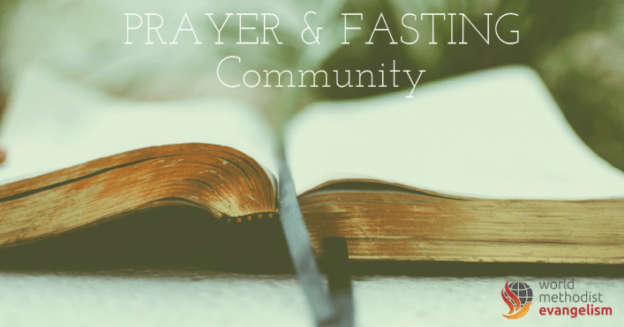Today is Ash Wednesday, the day Christians all over the world mark the beginning of Lent, many with ashes and prayer and fasting. This is not a day when we usually read the resurrection portion of the gospels, but considering the powerful and visible ways the Holy Spirit has been moving these past few weeks, this may be a good year to do just that.
In the last chapter of Luke’s gospel we are given both a promise and a commission. Jesus promises to send his Holy Spirit and instructs us to take the “message of repentance to all the nations” because “there is forgiveness of sins for all who turn to me.” (Luke 24:47, NLT)
Repentance. Forgiveness. These are the themes of Lent, and, it seems, the focus of the Holy Spirit’s work in these days – a work that is clearly spreading far beyond its beginnings at Asbury University.
I’ve been moved by what I’ve read about students publicly confessing addictions to pornography, anger at God, bitterness of heart, despair as the result of difficult family situations. It is clear there is pervasive anxiety, depression and deep woundedness. And yet these same students are proclaiming healing, joy, and a deep love of God like they have never before experienced.*
I’ve been amazed at the consistency of the descriptions of what the Holy Spirit is doing. Joy and peace are pervasive. This is clearly a tender and beautiful outpouring of the Spirit, marked by sweet gentleness.*
What a contrast to our world. We are in a thrashing time. A time marked by our breathtaking ability to do violence to each other. We hurt those we love most with our words and our deeds. We let others down by the things we do and the things we don’t do. Our world is filled with greed and indifference, lust and envy, gluttony, anger, and pride. Our lives are marked by anxiety and depression, broken relationships, and damaged hearts.
And amidst all this thrashing, the Holy Spirit is moving with a sweet gentleness. In an age of anxiety and violence, God is reaching out to us with peace.
As we begin this season of Lent, my prayer is that each of us would remember that we are witnesses to an amazing truth: there is forgiveness for all who turn to Jesus Christ. God is searching for each of us, offering us forgiveness, joy, and peace. And God’s goodness and kindness and holiness and grace and presence and creating power and salvation are here now. They are all available to us now. I pray you would experience that reality. That the sweet gentleness of the Holy Spirit would wash over you in a way that heals, redeems, and restores. And that you, in turn, would channel that same Holy Spirit gentleness to those who so badly need a word of peace and joy.
*Suzanne Nicholson – When Streams of Living Water Become a Flood: Revival at Asbury University.







